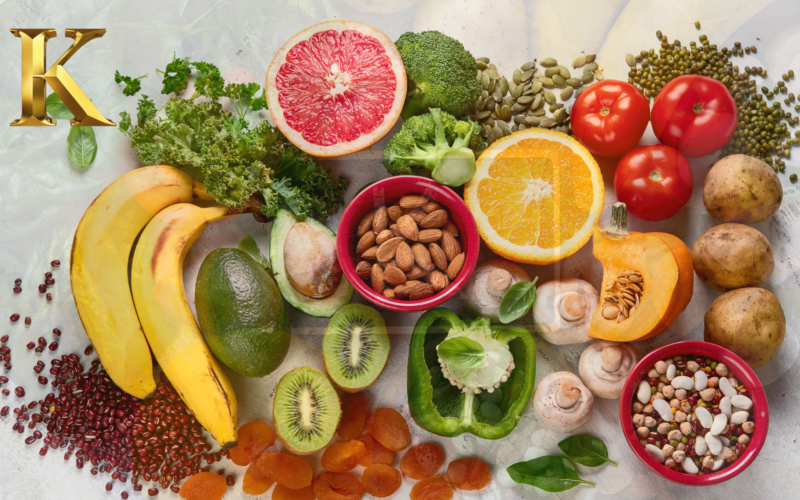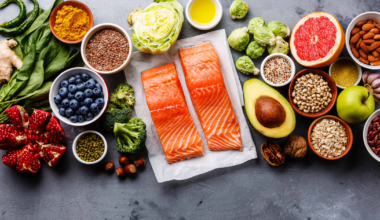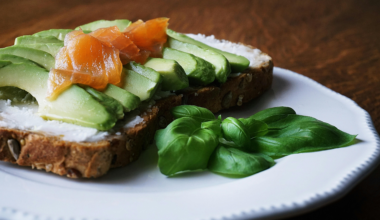Potassium is one of our bodies’ most essential minerals for proper functioning. It plays a crucial role in maintaining fluid balance, supporting healthy nerve function, and ensuring the smooth operation of muscles, including the heart. While many people focus on calcium or protein when thinking about their diet, potassium is just as important yet often overlooked. Knowing which foods are high in potassium can help you meet your daily nutrient needs and improve overall health.
In this guide, we’ll explore the importance of potassium, its benefits, and the best potassium-rich foods to incorporate into your daily diet. Whether aiming to boost heart health, manage blood pressure, or support muscle function, adding more potassium to your meals is key.
Why is Potassium Important?
Potassium, an electrolyte, is a key player in regulating several vital bodily functions. It works in tandem with sodium to maintain fluid balance, ensuring your cells are adequately hydrated while preventing excess water retention. This function of potassium is particularly reassuring, as it guarantees your body’s hydration needs are met.
- Muscle contractions: Including the beating of your heart.
- Nerve function: Helping nerves transmit signals between the brain and the body.
- Maintaining healthy blood pressure: Potassium helps to counterbalance the adverse effects of sodium, which can lead to high blood pressure when consumed in excess.
A potassium deficiency can lead to muscle cramps, fatigue, irregular heartbeats, and, in severe cases, hypokalemia, a condition marked by dangerously low potassium levels in the blood.
The recommended daily potassium intake for adults is around 2,500-3,000 mg. However, this can vary depending on specific health needs and physical activity levels.
Health Benefits of Consuming Foods High in Potassium
Increasing your intake of potassium-rich foods comes with a wide range of health benefits. Potassium supports the essential functions of muscles and nerves and plays a preventive role in many health issues. This emphasis on prevention should empower you to take control of your health.
Heart Health and Blood Pressure Regulation
One of potassium’s primary roles in the body is helping maintain a healthy fluid balance. By balancing sodium levels, potassium reduces strain on the blood vessels, which in turn helps lower high blood pressure. Numerous studies have shown that people who consume high-potassium diets tend to have lower blood pressure, which decreases the risk of heart disease and stroke.
Bone and Muscle Health
Potassium contributes to bone health by neutralizing acids that can otherwise weaken bones. A potassium-rich diet can slow down bone loss and reduce the risk of osteoporosis as we age. For muscles, potassium ensures proper contraction and relaxation. Consuming sufficient potassium prevents muscle cramps and promotes faster muscle recovery after exercise.
Kidney Function
Potassium helps prevent the formation of kidney stones by keeping calcium levels in check, reducing calcium buildup in the kidneys. A potassium-rich diet supports kidney health and may lower the risk of kidney stones, especially when combined with adequate hydration.
Top Foods High in Potassium
Including potassium-rich foods in your diet is an effective and natural way to meet your daily potassium requirements. Below are some of the best sources of potassium, along with their potassium content per serving:
Bananas
Perhaps the most well-known potassium source, bananas are an excellent and convenient way to get this essential mineral. A medium-sized banana contains about 400-450 mg of potassium. Bananas are also fiber-rich and are great for energy due to their natural sugars.
Sweet Potatoes
One of the richest vegetable sources of potassium, sweet potatoes contain about 540 mg of potassium per medium potato. They also contain fiber, vitamins A and C, and antioxidants. The versatility of sweet potatoes, which can be baked, roasted, or mashed into a delicious and nutritious side dish, should inspire you to include them in your diet.
Spinach
Spinach is a nutrient powerhouse; one cup of cooked spinach delivers around 840 mg of potassium. It’s also an excellent source of iron, magnesium, and calcium, making it a key addition to a healthy diet. You can add spinach to smoothies, salads, and soups or sauté it as a side dish.
Avocados
Avocados are rich in healthy fats and high in potassium, providing about 700 mg per medium-sized fruit. They can be eaten on toast, added to salads, or used as a topping for various dishes. The healthy fats in avocados are also beneficial for heart health.
White Beans
Legumes are another great source of potassium. White beans, in particular, contain about 600 mg of potassium per half-cup. They are also high in fiber and protein, making them a great addition to soups, stews, or salads. Other beans, such as black and kidney beans, are good sources.
Salmon
Fatty fish like salmon are rich in omega-3 fatty acids and offer about 500 mg of potassium per 3-ounce serving. Including salmon in your diet supports heart health while helping to maintain potassium levels.
Tomatoes
Whether fresh or in the form of tomato products like sauce or paste, tomatoes are a tasty source of potassium. One cup of tomato juice contains around 500 mg of potassium. They are also rich in vitamins C and K and lycopene, an antioxidant beneficial for skin and heart health.
Coconut Water
Coconut water is an excellent choice for a refreshing way to boost your potassium intake. One cup of coconut water provides around 600 mg of potassium, making it a great post-workout drink to replenish electrolytes lost through sweat. It’s low in calories and a healthier alternative to sugary sports drinks.
Oranges
Oranges and orange juice are another convenient way to get more potassium in your diet. A medium-sized orange contains about 240 mg of potassium, and a cup of orange juice has around 500 mg. Oranges are also rich in vitamin C, which supports immune function.
Mushrooms
Mushrooms are often overlooked as a potassium source, but they are a great option. One cup of cooked mushrooms contains around 450 mg of potassium. They’re versatile and can be added to stir-fries and salads or used as a meat substitute in many dishes.
Tips for Incorporating Potassium-Rich Foods into Your Diet
Meeting your potassium needs doesn’t have to be complicated. Incorporating a variety of foods high in potassium into your daily meals can be easy and enjoyable. Here are some tips for boosting your potassium intake:
Start Your Day with Potassium
Begin your day with a potassium-packed breakfast. Add bananas to your oatmeal, include spinach in an omelet, or drink a glass of orange juice. These small changes can significantly increase your potassium levels from the start of the day.
Snack on Potassium-Rich Foods
Instead of reaching for chips or processed snacks, opt for potassium-rich foods like almonds, raisins, or a bowl of yogurt with fresh fruits like oranges or kiwis. Nuts and dried fruits are great portable snacks that can help you meet your nutrient needs.
Add More Vegetables
Add potassium-rich vegetables such as sweet potatoes, spinach, and tomatoes to your meals. You can incorporate them into soups, stews, or side dishes or toss them into salads for an extra nutrient boost.
Drink Coconut Water After Exercise
Suppose you’re looking for a natural way to replenish electrolytes after a workout; swap sugary sports drinks for coconut water. It’s a great source of potassium and hydration and can be a healthier alternative to high-sugar beverages.
Risks of Potassium Deficiency
A potassium deficiency, known as hypokalemia, can lead to several health issues, especially if left untreated. Symptoms may include fatigue, muscle weakness, irregular heartbeats, and high blood pressure. Severe potassium deficiency can cause serious complications, including heart palpitations, constipation, and muscle paralysis. Those at risk include individuals with kidney disease, athletes who lose excessive amounts of potassium through sweat, and people who take diuretics.
Consuming enough potassium daily can prevent these complications. However, people with certain conditions, such as kidney problems, should consult their doctor before increasing their potassium intake, as excess potassium can also lead to health issues.
Maintaining a Balanced Potassium Intake
While potassium is essential, it’s crucial to maintain a balanced intake, especially for individuals with kidney disease or those on certain medications. Too much potassium, known as hyperkalemia, can cause complications like abnormal heart rhythms. For most people, meeting the recommended daily intake through diet is safe and beneficial. Still, checking with a healthcare professional for underlying health concerns is always wise.
Conclusion: Prioritize Potassium in Your Diet
Including potassium-rich foods is a simple yet impactful way to boost your overall health. From maintaining heart function and muscle health to regulating blood pressure and supporting bone strength, potassium is an essential nutrient that deserves attention. By incorporating potassium-rich foods like bananas, sweet potatoes, spinach, and avocados into your daily diet, you can meet your nutritional needs and enjoy potassium’s many benefits. Make small, consistent changes to your diet, and you’ll be well on your way to achieving better health and well-being.




